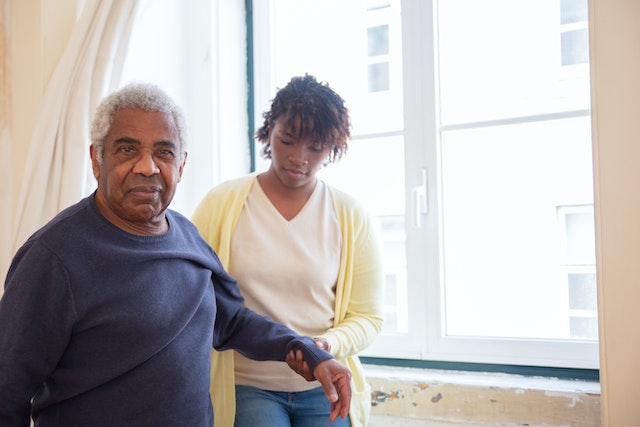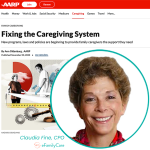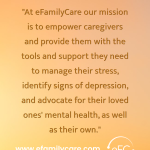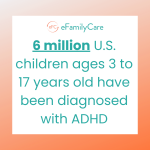If you’re reading this, you probably have a loved one who needs extra care. Maybe they can’t do some things on their own anymore and you’ve had to step up and help them out. Maybe they don’t even realize that what they need is extra help with their daily activities because they’re too busy trying to be independent and self-sufficient. Regardless of where you fall in the spectrum of caregiving, it’s important for everyone involved—including yourself—to know that this role is not only normal but essential for your loved one’s health and happiness.
Caring for a loved one can feel like a full-time job. It’s something you do every single day, and it can be draining, physically and emotionally. You’re taking care of your loved one but also yourself—and that means you’re being a caregiver all the time.
Because caring for someone else isn’t just an activity or role; it truly is something we live out in every moment of our lives. It’s not something we “do” at certain times or when it’s convenient for us (unless maybe we’re talking about some kind of temporary respite, like hiring housekeeping services). We all take care of ourselves; our bodies and minds are constantly keeping us alive by doing their thing all day long! We eat food, so our bodies don’t starve; we go to sleep so our brains can rest; we go outside, so sunlight gives us energy… if these things stop happening, then eventually, so does life itself!

“Because caring for someone else isn't just an activity or role; it truly is something we live out in every moment of our lives.”
eFamilyCare Tweet
Am I my loved one's caregiver?
You are a caregiver if you provide help to someone who needs it. There are many ways to be a caregiver, including:
- Providing personal care (such as bathing, dressing, and grooming)
- Giving emotional support (for example, listening or helping with decision-making)
- Communicating with health care providers on behalf of the person you are caring for.
What kind of caregiver do I want to be?
Being a caregiver is not easy. It’s a 24/7 commitment, it can take over your life, and you need to be ready for the long haul. However, the right support network and plan can help you weather the storm and provide the care that your loved one needs.
So what kind of caregiver do you want to be?
A good caregiver understands their role in providing physical assistance and emotional support while maintaining their own health and happiness. They also have an understanding of self-care, as well as being aware of how stress impacts people with dementia or other conditions requiring around-the-clock attention. This means taking breaks from time to time—whether going out with friends or taking up new hobbies—and getting enough sleep each night so that they’re refreshed when morning comes around again!
Being proactive about getting help when needed is crucial, too: if your loved one needs more help than what one person can provide on their own, then consider hiring someone part-time (or full-time) depending on how much assistance is required.
Where can I find help being a caregiver?
You may have some friends and family who can help you out while you’re caring for your loved one. If that’s the case, great! But if not, don’t be shy about seeking out other caregivers. You can talk to them about what they’ve learned, what might work best in your situation and ask them for any advice or tips that might make things easier for you.
Another option is to join a program like eFamilyCare’s. It offers emotional and practical assistance from people who have gone through similar experiences. They know what it feels like to be in your shoes. They also allow caregivers to get access to help with medical care and questions, prescriptions, and other support you might need!
This program aims to support family caregivers by providing access to resources and a professional Care Adviser. You can message, or schedule a video call with your care adviser to ask questions, get advice, and learn ways to provide excellent care while also caring for your own wellbeing. eFamilyCare has a wide network of resources to connect you to support in your community such as doctors, pharmacies, social workers, and more.
Why should I think outside the box when it comes to caring for myself?
You’re not a robot. I know it can feel like you are, with all the responsibilities you have to juggle and the weariness that comes from being so consumed by another person’s needs, but trust me: You’re not. You need to take care of yourself so you can take care of your loved one.
It’s important that you remember this because there will be times when it feels like no one else understands what you’re going through as a caregiver—and that’s because many people don’t! People who haven’t experienced being a caregiver often make assumptions about what it means (like “the patient must be in terrible pain” or “the patient is completely dependent on me”) without knowing any more than what they see from afar—which is never enough information to form an accurate picture of someone else’s situation.
So remember: If someone tries telling you how hard your job as a caregiver must be for them just by looking at it from their perspective—even if they’re trying to help!—that doesn’t mean they know anything about what actually goes into taking care of someone else (or even themselves).
You're already a caregiver, and that's awesome!
As a caregiver, you may feel like the only one in your family caring for an aging or disabled loved one. You’re not alone! In fact, over 50 million Americans provide unpaid care to someone living with a disability or chronic illness. It can be hard to know where to begin when caring for a loved one, but there are many resources available to help you get started.
If you’re reading this, chances are you have someone in your life who needs care. Whether it’s a parent or sibling, partner or friend, it can be difficult to know where to start and how to best help them. You may feel like there aren’t enough hours in the day; maybe even feel like giving up at times. But don’t worry! By taking some simple steps towards care for yourself—whether that means finding time for yourself each day or spending more time with loved ones—you will be able to take better care of others while also improving the quality of life for everyone involved!







